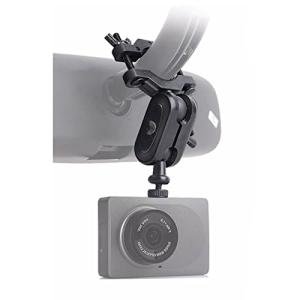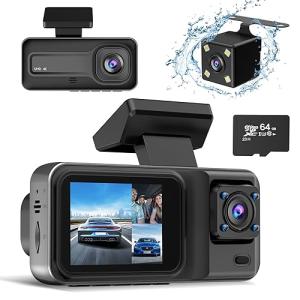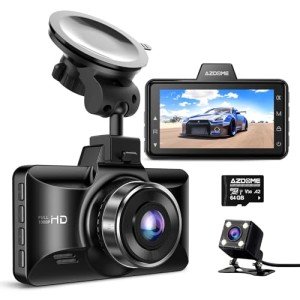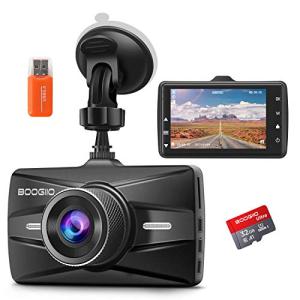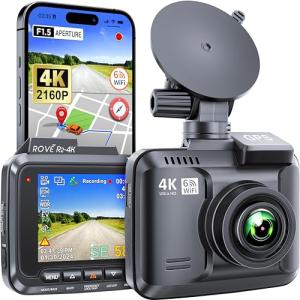Picking the right camera can feel a bit overwhelming, but it doesn't have to be! Think about what you’ll use it for. If you're just snapping family photos or capturing trips, a point-and-shoot digital camera might be just the ticket. They’re user-friendly and compact, making them easy to carry around.
If you want to get serious about your photography, consider a DSLR or mirrorless digital camera. These give you way more control. You get to adjust settings like aperture, shutter speed, and ISO to really get the shot you want. Plus, you can switch lenses for different effects, which is super fun.
Don’t forget about features! Look for things like image stabilization to help with those shaky hands. A high megapixel count can make a difference if you plan to print large photos, while Wi-Fi connectivity makes sharing easy. Also, check battery life—nothing’s worse than running out of juice mid-shoot.
Finally, set a budget. Cameras come in all price ranges, and while it’s tempting to go for the latest model, you don’t need to break the bank. There are plenty of great digital cameras that won’t empty your wallet but still deliver fantastic results. Take your time, do your research, and soon you’ll find the perfect camera that fits your lifestyle and needs!
Key Features to Consider in Cameras
When shopping for digital cameras, it’s easy to get overwhelmed with all the options out there. Focusing on key features can help narrow down your choices and find the right fit for you. Here are some important things to keep in mind.
1. Megapixels Matter: Megapixels determine how much detail you can capture in your photos. If you plan to print large images or crop your photos, look for cameras with higher megapixel counts—generally, 16MP and above should do the trick for most people.
2. Lens Options: The type of lens you need largely depends on what you want to shoot. For versatility, zoom lenses can give you a wide range of focal lengths. If you're into close-ups of flowers or small creatures, consider a macro lens. Some digital cameras offer interchangeable lenses, which opens up even more possibilities.
3. Low Light Performance: If you often find yourself taking photos in dimly lit situations, look for cameras with larger sensors and better ISO performance. Cameras with good low-light capability will help you avoid grainy pictures and keep your shots crisp.
4. Ease of Use: If you’re new to photography, you’ll want a digital camera that’s user-friendly. Look for models with intuitive menus, helpful guides, and a solid automatic mode. A good camera can have advanced features, but it shouldn’t be confusing to operate.
5. Video Quality: If you’re thinking of recording videos as well as taking photos, pay attention to video specs. Look for cameras that shoot in at least 1080p quality, although 4K is becoming more common and offers amazing clarity.
Universal Dash Cam Mount for Most Car Cameras
Easily secure your dash cam for crystal-clear footage on every drive
Product information
$8.99
Product Review Score
4.24 out of 5 stars
95 reviewsProduct links
Tips for Taking Amazing Photos
Getting the perfect shot can sometimes feel tricky, but with a few simple tips, you can elevate your photography game using digital cameras. First off, learn about your camera settings. Familiarizing yourself with options like ISO, shutter speed, and aperture can make a big difference. For example, if you're shooting in low light, increase the ISO. In bright conditions, adjust the aperture for that lovely blurred background.
Next, composition is key. Always consider what’s in your frame. Use the rule of thirds: imagine a tic-tac-toe grid on your camera screen and place your subject along the lines or where they intersect. This simple trick often leads to more engaging photos. Also, don’t be afraid to experiment with angles. Sometimes standing on a chair or getting low to the ground can turn a normal shot into something special.
Lighting can make or break a photo. Natural light usually works best, so try to shoot early in the morning or late in the afternoon when the sun is softer. If shooting indoors, position yourself near windows for that beautiful, diffused light. And remember, harsh overhead lighting can create unflattering shadows.
Lastly, practice makes perfect. Keep snapping photos, even if they don’t turn out how you’d like. Review your pictures to see what works and what doesn’t. With digital cameras, you can take as many shots as you want without worrying about wasting film. Enjoy the process, and you'll find your unique style in no time!
4K 3-Channel Dash Cam, Front & Rear Cameras
Enhanced safety and visibility with ultra high-definition footage from the 4K 3-Channel Dash Cam, featuring front and rear cameras
Product information
$69.99
Product Review Score
4.7 out of 5 stars
172 reviewsProduct links
Caring for Your Camera Made Easy
Caring for your camera doesn't have to be a hassle. With just a little effort, you can keep your digital cameras in great shape for years to come. Start with the basics: always keep your camera in a case when you’re not using it. A padded bag protects it from bumps and scratches, which can happen even during a short trip.
Next up, regularly clean your camera lens. Dust and smudges can mess with your shots big time. Use a microfiber cloth to gently wipe the lens. If you’re dealing with stubborn dirt, consider using a lens cleaning solution and a brush. Just remember, be gentle! Your camera needs a little love.
Battery care is super important too. Always charge your batteries fully before your adventures, and if you're not using your camera for a while, remove the battery to avoid leaks. Storing it in a cool, dry place will help extend its life. Trust me, you don’t want your battery to die right when you’re about to snap that perfect shot!
Don't forget about the software side of things. Update your camera’s firmware to access new features and improvements. Missing out on updates means you’re missing out on the best your digital cameras can offer. Just check the manufacturer’s website every once in a while.
Lastly, take care when switching lenses. Dust can sneak in and mess with your sensor. When changing lenses, point the camera down and be quick about it. This little tip prevents dirt from making its way into your camera and ruining your photography experience.

